Roundtable: Who decides what kids can read?
Rather than the more usual story covering a parent objecting to graphic novels in the library, in this case this article reported library staff at the Jessamine County Library, located in Nicholasville, Kentucky, stepped in to prevent what they dubbed "porn" from being distributed to a child (an eleven year old girl.) The article, as you can see, is short and under-informed: the women in question were not librarians but circulation desk attendants, and the distinction between masters’ degree holding librarians and circulation staff is an important one in the library sphere. The spelling errors and slant of the article may call into question the facts as presented. It’s apparent that this title was on hold (i.e. at the Circulation desk) for the patron, so it was unclear where the title was shelved. Later checking in the online library catalog does indicate that the title was shelved in a separate graphic novel section, one apparently intended for teens and adults. This followup article discusses how titles are selected for a library and reactions from the public coming from both sides.
Some of the first questions I’ve heard from the librarians who’ve reacted have been: where was the title actually shelved? How can we fight the misperception that so many, including our own staff, have that comics are for kids? When an article like this surfaces, seemingly focused on the sensational aspects, how can we defend libraries, librarians, and comics?
ADVERTISEMENT
ADVERTISEMENT
Other questions have arisen: what would you do as a librarian or educator or parent, if anything, in this situation? How might you react if this happened to your child? Would you be glad that the staff intervened, or would you be puzzled?
I invited my colleagues here at Good Comics for Kids to debate the issues this incident raises for librarians, parents, and library users of all ages.
Robin: One of my first questions, here, is the question of just why the staff felt they could simply take the item off reserve. Within my library, for example, it’s very clear that you don’t comment on what someone has reserved and certainly we would never interfere with someone’s title already on reserve. I have, at times, chatted with people while they were in the middle of requesting items, and occasionally talked to a parent about the content of a particular title they were requesting for their child just to make them aware of the intended audience and content levels, but I would never not request an item if they requested me to, nor would I take a request off of their card.
Another practical question that came up in my head: in my library, parents use their children’s cards all the time to request items intended for the whole family, including the parents or older siblings, so I almost immediately wondered if in fact the actual card associated with the request was the person who asked for the book. It’s entirely possible it was a mom or dad requesting the item for themselves, or their college-age son, on their daughter’s card.
However, even if it was for an eleven year-old girl, my professionalism would keep me from ever interfering with a request like this. It is not my job to police what other people are reading according to my own personal standards. I might, if I were able to, ask whoever picked up the item if they were aware of its intended audience, hopefully speaking with a parent or guardian of the child. I might even go so far as to ask the circulation staff to come and find me when the person came to check it out, to talk to the parent and educate them about the title and that it was intended for adults. I can understand the confusion of not realizing a title was for adults, especially if it was a parent who is unfamiliar with comics today.
The idea of taking the decision out of the parents hands, however, is not our policy or our responsibility — it should never be my job to decide what someone else has a right to read.
Eva: I had many of the same reactions Robin did. I first suspected that the library employees in question are not actually librarians, but paraprofessionals. (This turned out to be true.) The majority of the paraprofessionals I’ve worked with have been extremely professional, but they usually haven’t had the Library Bill of Rights drilled into them the way most librarians have. This sometimes leads to misunderstandings about which types of intervention are appropriate and which are not. There are so many variables that come up in a library, the idea that these ladies would take matters into their own hands is surprising. Even with the best of intentions, the fact that they would invade both the girl’s and her family’s privacy by not only going into her patron profile, but arbitrarily canceling her hold, certainly calls for immediate re-training, if not disciplinary action.
My next suspicion was that a family member had used the girl’s library card to place a hold. As in Robin’s library, this happens often in my system, too. But let’s do some imagining. There was a movie made about the first book and that movie was rated PG-13. There’s every chance an eleven-year-old could have seen the movie, piquing her interest in the title. Therefore, it’s not unimaginable to think an eleven-year-old girl would assume that if the movie was okay for her to watch, the book would be okay, too. That the book is meant for adults would be lost on a young patron because, at least from what I can tell by looking at the Jessamine County Public Library’s catalog, all of the graphic novels for teens and adults are shelved together. Naruto and Yotsuba&! are shelved in the same area as League of Extraordinary Gentlemen, volumes one and two. (Out From Boneville is shelved in the children’s department under J741.5973. Sigh.) So tweens are expected to be browsing the shelves where League of Extraordinary Gentlemen is housed. To me, this is yet another real-world example of why one graphic novel collection per library is a Bad Idea. Two collections is a minimum. Three collections is best.
Do I think the library staff members did the right thing? No. But I don’t think the library did all it could to inform its customers about the material housed on its shelves, either.
Robin: Brigid, I can definitely see where you’re coming from, but in all honesty, no, we don’t have a duty to alert someone. A school librarian might, in terms of acting in loco parentis, but a public librarian simply cannot. I cannot predict what might alarm or discomfit what parent, or kid, and the problem comes from trying to guess that. As I said, if I was able to, I might try to talk to the parent or even the kid and bring up any concerns about content. Many kids and teens know their own comfort levels, and a bit of warning that a book ventured into adult territory might well be enough to make them realize it either wasn’t what they expected or that the title would be too much.
Another point, by the way, is that many libraries do have limited cards for children — children can be restricted from taking out adult materials through a card classification, and this is something that parents voluntarily sign up for in order to control what their children can check out. That seems to be a decent medium — it still puts the decision in the parents’ hands, and it does give parents a viable option that means they don’t have to peer over their child’s shoulder at everything they read.
Finally, as Eva has pointed out, this incident does underscore the necessity for separate graphic novel sections for children, teens, and adult patrons in our public libraries. Having only one section for the format, or only two, perpetuates the incorrect belief that graphic novels are only for particular ages. The more we as librarians can demonstrate that there are comics of interest to and appropriate for a wide range of readers, including age, then hopefully the less these kinds of incidents will happen.
ADVERTISEMENT
ADVERTISEMENT
Esther: Just this afternoon, a young lady came up to me and asked me, "Am I too young to read Twilight?" I was taken aback, because the kids generally don’t ask me that. I asked her why she thought she was too young, and it seems like something came up at Church. What I told this young lady: "If I ordered it for this library, then I thought it was appropriate for her age." I told her she should go home and discuss this with her parents and if they thought it was okay, then I’d be happy to put her on the list.
I do see both sides of this issue all the time. When I worked at the public library, I worked in a branch which had many patrons who shared my own religious beliefs, and was often asked, is this okay for me. Yet, if I saw someone picking up a title that wasn’t appropriate for them, I couldn’t say anything unless I was asked. Since my days in the public library, and now in the school system, I’ve actually become more prudish. There’s a huge difference in maturity between 11-year-olds and 14-year-olds and I purchase books and materials for the entire age span. Sometimes an 11-year-old picks up something that was intended for the 14-year-old. What do I do? Some in the library world would say this isn’t okay, but I do it anyhow. I ask them if their parents are okay with them reading mature material. If they say yes, then I check it out. If they say no or aren’t sure, I leave the choice up to them. I just alert them to the content.
Still, I felt sort of shocked when reading the story, and was glad to hear it wasn’t a librarian, but rather a paraprofessional, because it is so contrary to the way libraries work. They’re supposed to be about free choice – a place where you can made choices without being judged. It seems to me that it’s a bit harsh to be fired over this. I think a bit of professional development is in order. Unless the story is correct and these employees are now on a mission to rid the library of all the "evil and inappropriate material."
I don’t know…. I grew up understanding that not everything in the library was for everyone. It’s just that there’s something for everybody in the library.
Filed under: Uncategorized
About Robin Brenner
Robin Brenner is Teen Librarian at the Brookline Public Library in Massachusetts. When not tackling programs and reading advice at work, she writes features and reviews for publications including VOYA, Early Word, Library Journal, and Knowledge Quest. She has served on various awards committees, from the Will Eisner Comic Industry Awards to the Boston Globe Horn Book Awards. She is the editor-in-chief of the graphic novel review website No Flying No Tights.
ADVERTISEMENT
ADVERTISEMENT
SLJ Blog Network
2024 Books from Pura Belpré Winners
In Memorium: The Great Étienne Delessert Passes Away
Parsing Religion in Public Schools
Finding My Own Team Canteen, a cover reveal and guest post by Amalie Jahn
ADVERTISEMENT

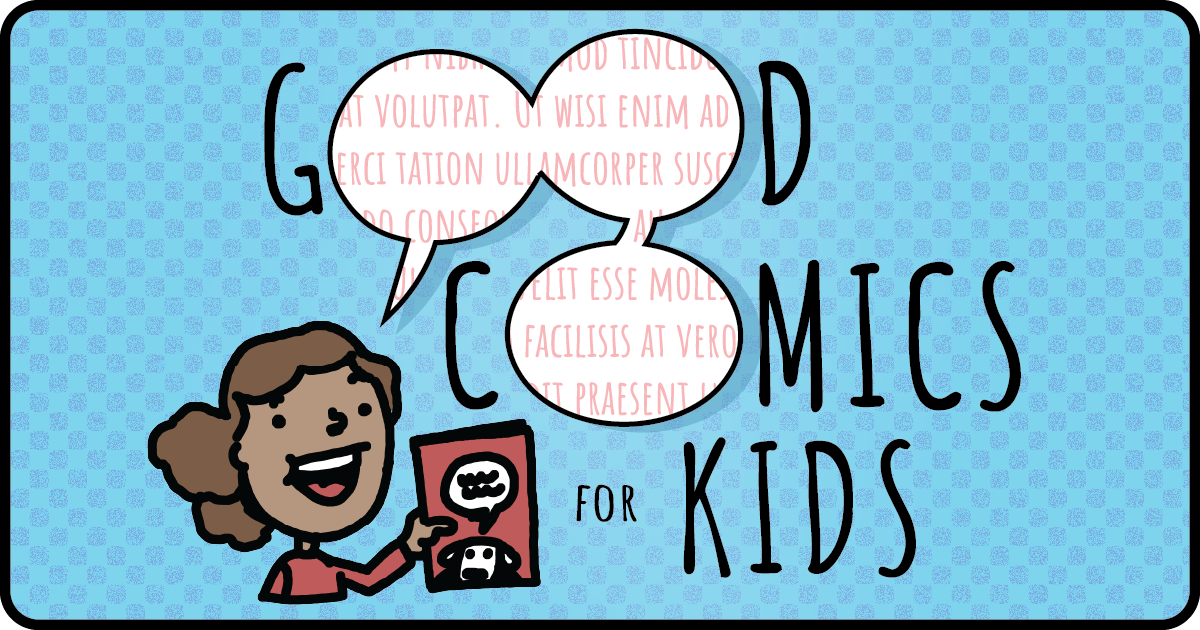

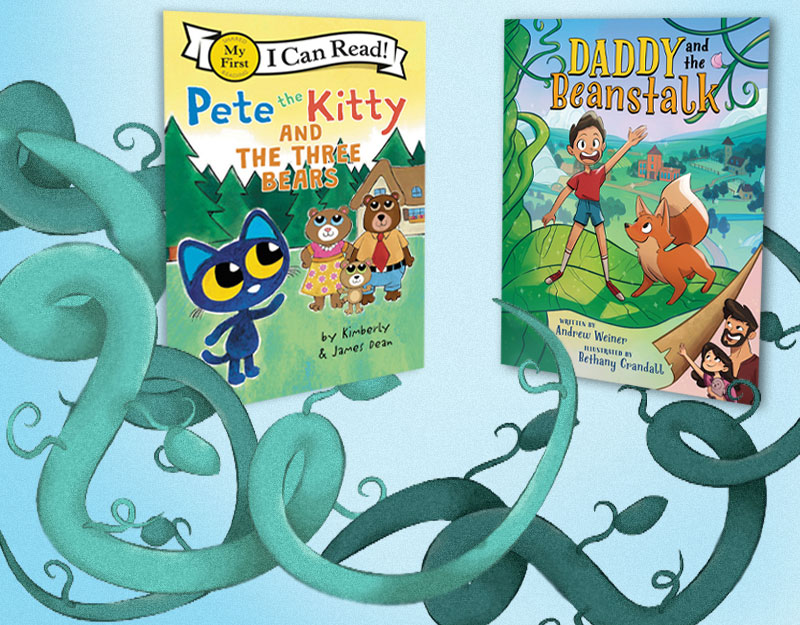
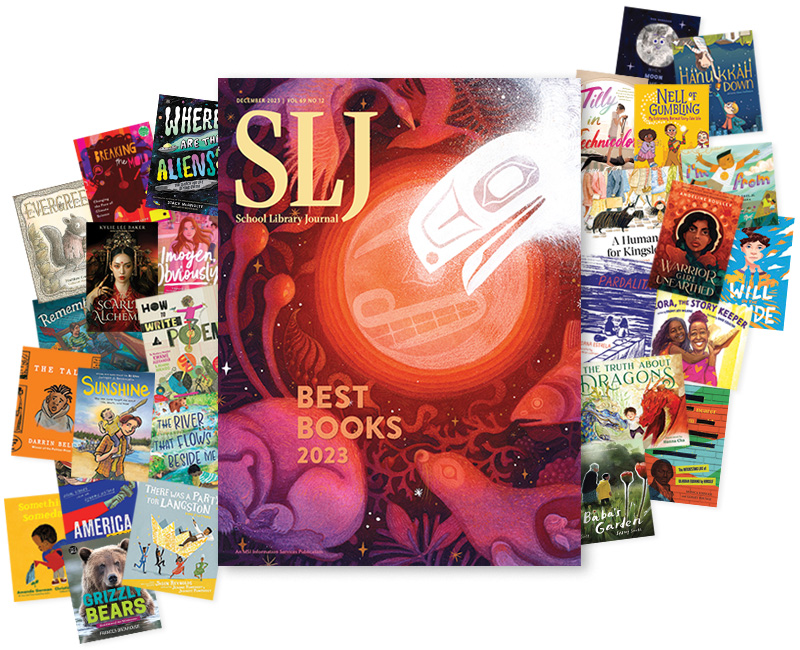
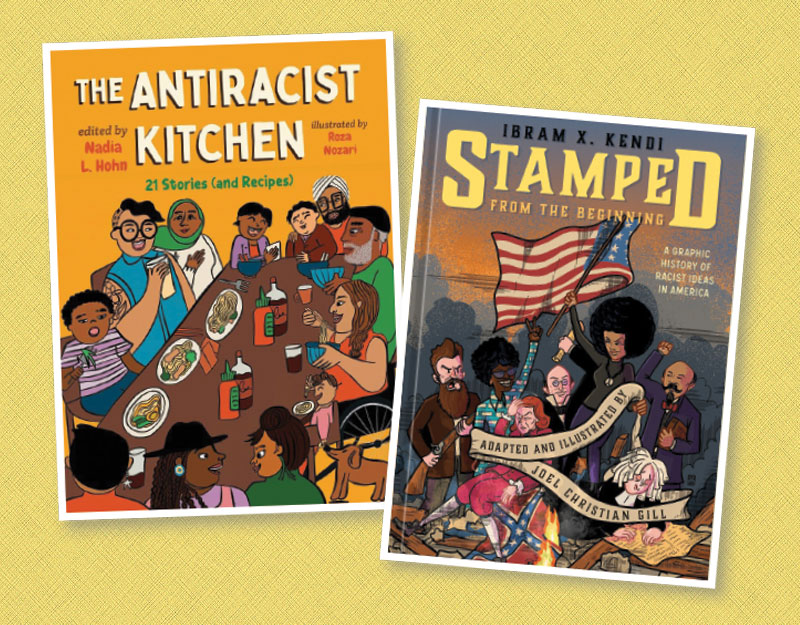
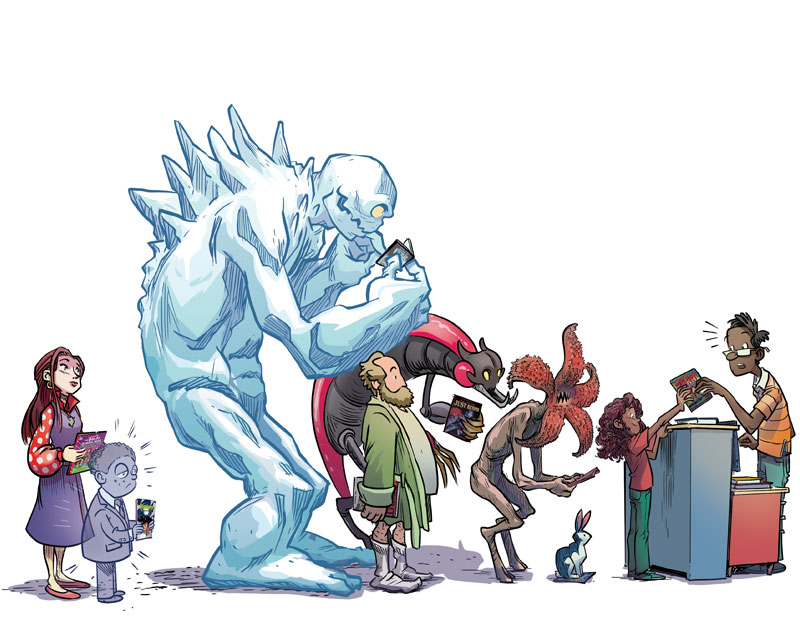
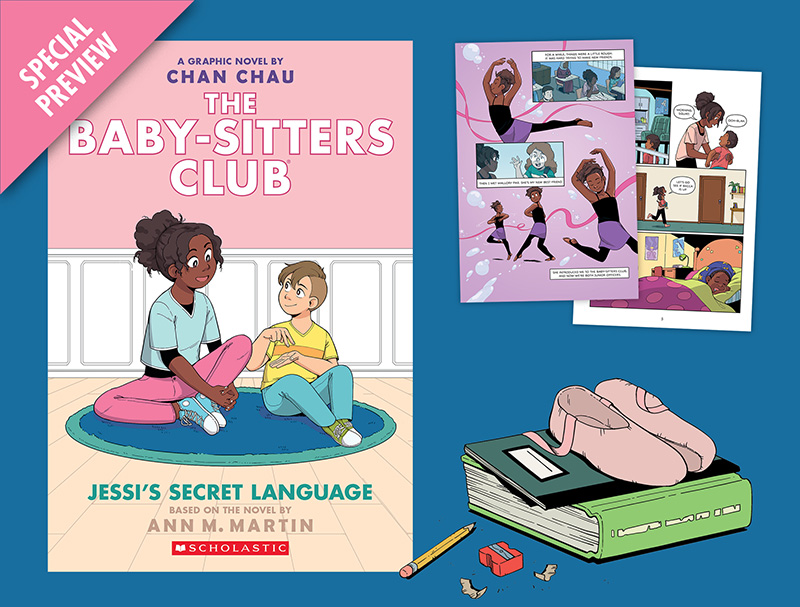
I have to be honest; I’m divided on the issue. I’m disturbed that libraries would give out any book to anyone of any age without question. I’d like to think if you saw a 12 year old, boy or girl, checking out a volume of the Marquis De Sade that someone would stop and talk to the child’s parent. However, as Lori makes evident, some parents trust the discretion of their child to choose the appropriate book. As long as I know the parent is permitting a child to read the material, then I have no qualms. I just want to be sure the parents know what their kids are reading.
Perhaps library cards with age ratings on them would be a solution. So I, as a parent, go in and tell the library to give my 12 year old a PG-13 card and Lori goes in and tells the library to give her 12 year old and unrestricted card. That way there’s no doubt in the librarian’s mind which books are appropriate for each child. I would add that libraries force a parent to choose an age rating at the time the card is issued for a child and not give out unrestricted cards as a default. This way if a parent is upset about a book their child has checked out, the library can simply refer back to the card request form and show the parent what they approved. If a parent is uncomfortable with the selection available to their child, they can always lower the age rating.
P.S. Lori, I hope you don’t think I’m picking on you. I’m not. You just provide an excellent open-minded counter example to my own over- protective way of thought.)
why books are not treated the same as going to the movies? if you’re not of age to read it just bring your parents to check it out. I tired of hearing comics put on the chopping block because even 1 parent got irritated that their kid had access (even if other parents dont mind) like the DBZ incident.
As for parents checking things through their kids’ card, thats all fine but they have to be present to get it not send a child
Ed, in many cases, the rules regarding access to materials were put in place to protect the borrower in a worst case scenario. For example, what if the child wanted to check out a book on abuse, but there is a PG-13 block on his or her card? That means the parent, who may be the abuser, now needs to grant permission for the child to have access to the book. No, it’s not nice to think about, but it happens. And it’s one of the reasons why the Library Bill of Rights and the ideal of free access to information for all is championed in public libraries.
As a less extreme example, consider that many of the books assigned in schools were actually written for adults. With a PG-13 block, the parent would have to come to the library to approve his or her child having access to Dickens, Shakespeare, or Twain. A PG-13 card would block access to ALL adult material, not just the material with naughty bits. Yes, there are libraries that have PG-13 cards, and in some communities the system works. But before applying the strategy everywhere, the whole picture has to be examined and evaluated.
Eva,
For a child suffering abuse, I not sure free access to books on abuse are the solution. I understand the argument, I just don’t agree with it. I believe knowledge is power, but it’s not all-powerful.
While true that many books are written for adults, it’s easy to see that not all books should be ‘adult’ rated. Dickens’s A Christmas Carol certainly qualifies for a 7+ rating, if not all ages. The same with many of the plays of Shakespeare. For most books, I don’t think finding an appropriate age rating would be a problem. So I’m still in favor of age rated library cards. However, if a community doesn’t want that, I’m certainly not going to force them to implement it.
Okay. How many of you have actually READ the LEAGUE OF EXTRAORDINARY GENTLEMEN? It’s an excellent book, with serious artistic merit. It also, early on, depicts the Invisible Man raping a schoolgirl (Polyanna of literary fame, no less) in mid-air. Later volumes has Mr. Hyde (of Jeckyll and Hyde) violently and bloodily sodomizing that selfsame Invisible Man.
I’m not a prude, and if my son, when he was eleven, had wanted to check that out, I would have let him. But I KNOW him, and I don’t know if I would be so blaise if it was an eleven-year-old I didn’t know.
If it were a six-year-old who wanted to check it out, I definitely would have wanted the parent’s consent. If it were a fourteen-or-fifteen year old, I’d let them have it without a qualm. But—an eleven-year-old? That’s an iffy age for that sort of thing.
Remember–again–this depicts a schoolgirl being raped, in mid-air, by an admittedly invibible man, but it’s extremely clear to anyone what’s happening. Graphically, not just described.
The book is NOT by any stretch of the imagination, child pornography. Still…this is perpetually-optimistic Polyanna, a childhood icon. Being raped. In mid-air. In front of a horde of OTHER schoolgirls, roughly the age of the CHILD who is checking this out.
I’m not saying what these paraprofessionals did was right. It is doubtless against the library code. But maybe–JUST maybe–there were grounds to at least hesitate about the eleven-year-old checking this out.
@Ed, my intent was only to offer broad examples as to why limiting access to material does not always accomplish what the limiters hope. Because librarians can not act in loco parentis the way teachers can, we have to depend on the parents to act on their own behalf. And, as Lori pointed out, most do. This ties in to your point that, “not all books should be ‘adult’ rated.” I agree. But who gets to decide what should be limited to adult-only access? A library employee who does not know you or your family’s values? Most libraries feel that, beyond creating collections for children, teens, and adults, it’s the parent who should make that decision.
@alschroeder, I have read League of Extraordinary Gentlemen and agree that it is not pornography and that it does have a place in a public library, which is why I can’t stress enough that libraries need to have separate collections for children’s, teen, and adult graphic novels. In my experience, most children, once they find out the book they want is in the adult section, will find another book to read. If not, they’ll flip through the book, decide the book really isn’t what they thought it was, and put it back.
Keep in mind, these library workers didn’t attempt to advise their customer or her parents. As far as we know, they didn’t even try to find out if the customer was, in fact, the girl and not one of her parents using her card. They just canceled the hold. They didn’t just “hesitate about the eleven-year-old checking this out,” they made the decision for her and they made the decision for her parents. And that’s not okay.
@Ed I do understand your thinking, but I think we must agree to disagree. I personally cannot imagine rating novels and prose (and admittedly have some questions about just how much rating films, TV, or comics actually helps readers). For me, any rating presumes too much that everyone thinks the same way about a topic or content, and that has never been true in my experience. I work in a community, for example, that has a large population of Orthodox Jews, and what they might object to in a title would be very different from, say, a conservative Muslim, or a Roman Catholic. Aside from religion, there are so many other factors that to take into consideration that I would never feel comfortable deciding for anyone else what is appropriate or not appropriate. That is why I think in the case of public libraries, the decision must be on the part of parents. If a parent cares strongly about what their child is reading, then they need to one, educate themselves about their local library’s policies and collections, and two, do what they feel is necessary to monitor their child’s reading. Every parent will have a different solution for that, but they need to be the ones to implement it, not an outside person or a town institution.
@alschroeder I too have read League of Extraordinary Gentlemen, and the scenes you describe are precisely why, in my library, that title is shelved in the adult collection. Anyone can check it out, but we show it’s content by where we place it in our collection. If you were to implement such a plan for parental permission, how do you decide when that decision is made? Does it depend on the age of the child? When do you ask for a parent’s consent? What items would trigger asking for a parent’s consent? How would a library staff person (who may be from any part of the library) ensure they had parental consent for every particular book that’s being checked out? It’s not only a logistical nightmare, but it once again presumes that it is the library and library staff person’s responsibility to monitor the situation. As I work with teens, I know very well how maturity level changes from teen to teen. I am happy to consult with anyone on the content of graphic novels, and do frequently, but I cannot do for every single title that gets checked out to every single patron.
A final question — what if this were a prose book? Would that make a difference in the discussion? What if a library staff person had decided that, for example, Bram Stoker’s Dracula or Edgar Allen Poe was too adult for an eleven year old patron and canceled the reserve without checking with the person? If staff started deciding what was too much for particular patrons, however they defined it, I can just imagine how much of an uproar we would have. Why is it ok with a graphic novel? Is it just because it’s visual? Why is that more acceptable to limit? We live in a world of visual media everywhere we look, from television to movies to magazines to the Internet. Parents are generally left in charge of deciding on those media for their children, so why are books suddenly the library or librarian’s responsibility?
Let me clarify one point, I’m not asking librarians to do the book ratings. I would like to see the book companies do it, much in the same manner that manga and comic companies rate their titles. If book companies don’t want to invest the time and personnel, then they can form a rating agency similar to the MPAA. As with movies & comics, there are going to be tough choices and not everyone is going to be happy with them. But I honestly believe that it wouldn’t be that difficult to determine that a Danielle Steele novel is 17+, Harry Potter is 13+, & Dr. Seuss is all ages. And just like the movies a brief explanation of why the book received it’s rating would be appropriate, so parents can better decide which books they deem accept for their children.
Robin I would be upset if an 11 year old was permitted to check out Lady Chatterly’s Lover and no one thought it prudent to contact the child’s parent to make sure they were permitted access to such titles. I’m not holding graphic novels to a higher standard than novels.
I’m all for agreeing to disagree. Talking out the issues helps each of us clarify our position and better understand where the other person is coming from. And I’ll include my standard note. Just because I disagree with you doesn’t mean I don’t hold you and your opinions in the highest regard. Because I most certainly do.
You know, you were missing one perspective form this very interesting roundtable – the kid’s.
I was that kid.
At 9 I was reading *way* over my “appropriate age” level. I read whatever my Dad read (which explains a lot about my reading habits today.) I was reading books that were high school and college-level, as well as all manner of scifi and what would in like 4 years become known as the “Fantasy” genre – almost all of it had some adult content. Violence, sex, whatever. At 11 Watchmen wouldn’t have even be slightly shocking for me. Kind of a bore, really.
When I was 7, my library required a note from my parents to let me in the main section of the library and once they got that, I was on free rein. My parents never once limited what I could read and I love and adore them for that. In fact, the only comment I can remember was my mother once kvetching that I didn’t take out enough fiction as compared with non-fiction. lol At the time, there was a limit of 10 fiction and 10 non-fiction books at a time that you could have out. I maxxed out on every visit. 🙂
On another note, I’ve personally run into more issues with the paraprofessionals that staff the front desk of libraries more than any other people in the industry. They are often older, part-time and, well, kinda nosy or not really well trained in the role of the library. I’ve had some Circ. desk paras argue with me about books, talk about where I live (yes, really! No HIPAA at libraries) and generally give me a hard time over the years. Not all of them, but enough that it made an impression.
Clearly this is a lot of different issues, not just one. The role and training of paraprofessionals and the rights of kids as readers, as well as parental control. I’m on the side of librarians who reject the role of arbiter. It’s up to parents to watch what their kids read and to determine if it’s appropriate.
It *is* up to libraries to make a distinction between YA and adult GNs. Classification is part of the job, after all. 😉
As for kids – stand up for your right to read above your age, kids!
Cheers,
Erica
I find it very disturbing that, whatever the training and qualification of the persons working the Circ Desk, they were FIRED because of the refusal to check this item out to the young person? Isn’t that a bit extreme? If they were wrong in denying the checkout, couldn’t they have been counseled and retrained properly rather than terminated?
I was upset when our library system changed from having adult and youth(up to age 12)cards to having one universal card because we no longer gave parents the option to restrict their child’s access to adult materials unless they were physically with the child. I think that this is a big mistake not because I want to control what children read but I think parents should have the option. I do not believe that library staff should evaluate or restrict what anyone borrows from the library. I do think some libraries purchase tasteless materials but that is another issue.
I’m adding myself to the “I was that kid” list. My mom let me read whatever I wanted, and I read books without qualm at age 9 that I was shocked by when I re-read them in college. Kids have an amazing ability to block out things they aren’t ready for yet; I completely missed vast swathes of sexual content in the fantasy and science fiction I devoured as a child. Would my life have been better if some nosey-parkering adult had stopped me from reading Lyonesse and Clan of the Cave Bear as a preteen? I doubt it. If I had read graphic novels at that age (if there had been graphic novels in libraries at that time), I would have read them indiscriminately too.
I am not sure if all of the replies above are from professional librarians (redundant phrase in my opinion), but I find it disheartening to read that several people feel they have a duty to alert someone to the content. This is not the McCarthy era.
@Sebastian
Yes, professional librarian here. I don’t know if I would call it a “duty” per se. But I’ll give an example that does come up. A 4 or 5 year old wants to read “Charlotte’s Web.” Now a kid that age won’t be coming in without a guardian, I would probably want to ask the guardian if they know about the ending, in case they have a child who would be very sensitive to it. Will I always do it? No. Sometimes I might be busy, or know the child well enough to know he or she will be fine, or sense that the parent doesn’t want me to ask. But sometimes a situation will ping me, and if a guardian is available or the kid is amenable to a little comment I’ll say something and then hand them the book and leave it to them to decide.
Honestly, my main concern as a children’s librarian is that inappropriate material not get shelved in my room where browsers can easily come across it. If you are seeking it out elsewhere in the library, go right ahead. Hopefully your parents are taking an active enough interest in your reading life to make reasonable limits, if such limits are warranted.
Also, as to the circ people who got fired – well, we don’t know the whole story. This may not have been a first offense. If it was, firing seems harsh, but I’m betting there’s more to this story.
@Don: If you read all the news coverage, you’d find out that one of the circ clerks challenged the book nearly a year ago. Unhappy that that the reconsideration committee decided to keep the book in the library’s graphic novel collection, she decided to check the book out to herself indefinitely in order to keep the community as a whole safe from the unmentionable sex stuff in the book. When the hold was placed on the book, her plan was disrupted. So the circ clerk decided with the second circ clerk to invade the privacy of the unknown user in order to find out who would be so audacious/sinful to place a hold on the “smutty stuff” they were keeping off the shelf. Just their luck it happened to be an eleven-year-old – I doubt we’d be questioning their firing for multiple violations of library policy if the user had been older.